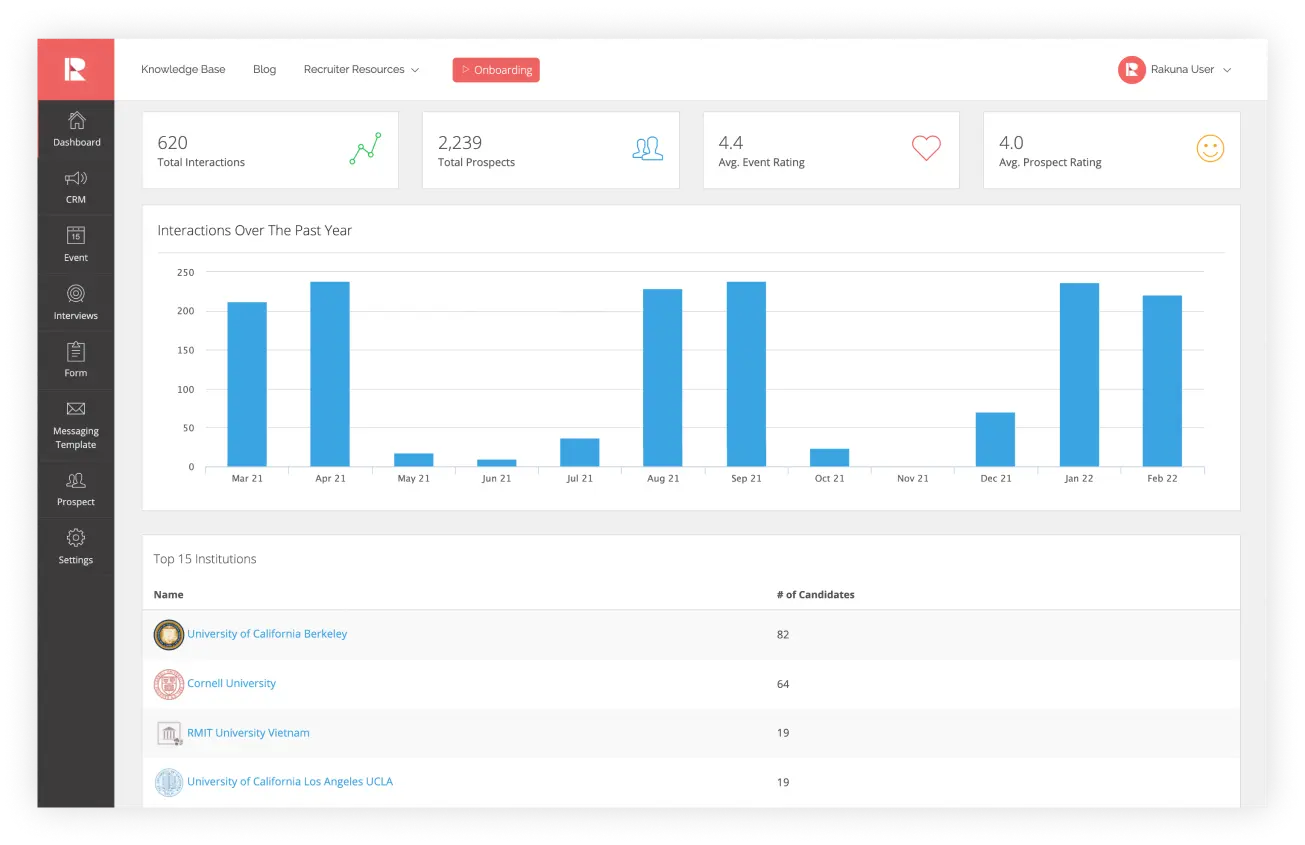One of the most important questions to ask when embarking on any recruiting initiative is, “How do we measure our return on investment?” If you’re going to make your recruitment program the best it can be, you need concrete, measurable goals and solid data on recruitment ROI that shows whether you’re meeting them. Whether a recruiting drive ultimately exceeds expectations or has a lackluster result, the resulting information can make future recruitment efforts far more effective.
Now, how do you measure the success of a recruitment program? Let’s look at a few metrics that can show you what you’re doing wrong and what you’re doing right.

1) Recruitment ROI: Interviews Per Hire
How many candidates do your recruiters interview before a hiring decision is reached? This metric shows your recruiters’ understanding of your organization’s needs. Ideally, there should be four interviews for each hire. You don’t want to be wasting time on interviewees who are either unqualified or unlikely to accept the job offer.
If this number is consistently high, there may be poor communication between HR and the rest of your organization. HR may have a poor understanding of the requirements for the position, causing them to let bad candidates through. The hiring manager may have done a poor job of establishing his or her department’s needs with HR. Finding where the communication went wrong and defining your organization’s needs will make your hiring process much more efficient.
Another way to increase the efficiency of your hiring process and interview process is to adopt interview management software to streamline your scheduling process and catch top talents as quickly as possible.
2) Recruitment ROI: Cost Per Hire
Add up all of the costs of your recruitment efforts (advertising fees, recruiter pay and benefits, relocation costs, recruiting agency fees, etc.) and divide it by the total number of hires. The number you get will show the cost of your recruitment effort to your organization.
This is a common metric for HR departments because it’s easy for people outside HR to understand. You will find more support from your organization if you can show your ability to operate efficiently.
However, you should be careful about relying on this metric. It does not say anything about the quality of the hires, so it should never be considered in isolation. Concerning this metric, you can even dive into cost per interview and cost per candidate as a different way to evaluate your recruiting success from a cost perspective.
3) Recruitment ROI: Performance of New Hires
As metrics go, this is one of the harder ones to quantify. However, despite how nebulous and subjective the “good employee” concept is, this can be an effective metric when evaluating your recruiters. In this case, you are looking at your recruiters’ ability to meet your organization’s needs.
As for ways of measuring job performance, you have multiple options. Performance evaluations are highly subjective but show managers’ satisfaction and productivity. You can also look into promotion rates, which show new hires’ ability to grow professionally and desire to remain with your organization.
4) Recruitment ROI: Turnover Rate
Are your hires staying with your organization? You don’t want to throw money at recruiting and training a new employee only to see that investment evaporate. If high turnover becomes a consistent problem, there may be huge costs to your organization.
In order to use the turnover rate to measure the effectiveness of your recruiting efforts, you will want to pay special attention to data from an employee’s first year. Divide the number of employees leaving in their first year by the total number of separations and multiply the quotient by 100 to find your first-year turnover rate. Ideally, this number should not be significantly higher than the average turnover rate for your organization or your industry.
If you’re finding that new hires tend to leave your organization relatively quickly, you may have found a symptom of a problem with your recruitment program. Maybe your program is reaching the wrong people. Maybe your recruiters have a poor understanding of your organization’s needs. Maybe there is bad communication between the hiring departments and HR. Find what you should be doing to find the right people and where those efforts are going wrong.
5) Recruitment ROI: Candidate Satisfaction
Are your recruiters meeting the needs of your candidates? If your hiring process rubs candidates the wrong way, you are likely to lose valuable talent for your organization. Your recruitment process needs to be as efficient as possible, not just for your organization’s sake but also for the candidates. A clunky job site or a slow response may drive a desirable candidate elsewhere.
You can collect data on candidate satisfaction by surveying new hires regarding your recruiting process, hiring, and onboarding processes. The data you get from these surveys can be used to improve the experience of future candidates.
6) Recruitment ROI: Quality of Source
Is a source providing you with high-quality candidates for your organization? Record the skills and backgrounds you will likely find from a particular source and consider whether you want people with those skills and backgrounds at your organization.
About Rakuna Event & Campus Recruiting Solution

Whether it is in-person or virtual recruiting events, we always have your back covered. Streamline your event recruiting operations seamlessly on one single platform.
With Rakuna’s Event & Campus Recruiting Solution, you can:
- Impress your candidates with paperless technology at recruiting events. Let Rakuna’s Mobile Recruiting App handle the data collection while your team converse and forge authentic connections, taking full advantage of face-to-face interactions.
- Leverage the Rakuna dashboard to plan, track, and promote all recruiting events, review candidates’ data and recruiters’ evaluations, collaborate with hiring managers, and automate communication with candidates pre and post-events.
- Have a complete view of all existing events’ results, whether in-person, virtual, or hybrid, to analyze past performance and allocate resources accordingly. Focus on delivering results rather than busy the mind with administrative burdens.
Want to see Rakuna in action? Book a FREE demo with us!


